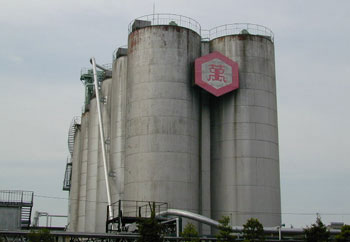
Feud Ferments Between Soy Sauce Makers
The condiment crisis of the day: The Japanese have a bitter taste in their mouths over the United States' insistence, in international regulatory negotiations, that all soy sauces are created equal.
The dispute, which has been on the table for several years, involves setting an international standard, under the auspices of a United Nations food standards program, for the manufacture and labeling of soy sauce -- that dark, piquant brew that has been used as a flavor enhancer in Japan and other Asian countries since at least A.D. 500.
In 1998, the Japanese asked the Codex Alimentarius Commission, whose committees have "harmonized" hundreds of food standards since the 1960s, to set a standard for soy sauce that would mirror the Japanese one. They wanted to make what they thought were important distinctions between traditional soy sauce, which is brewed and fermented from soybeans, and a popular American knock-off that contains an extract of soybean or some other protein, flavor enhancers, and artificial coloring.
"It's national pride. They want their country standard to be the international standard," said Ellen Matten, international issues analyst for the U.S. Codex Office. "The Koreans came in with kimchi and got a standard."
AP News: What's soy sauce without the soy? Japan defends Asian seasoning's tradition


